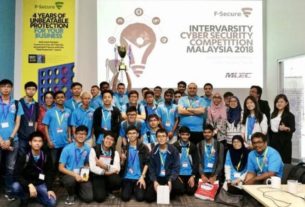The Institute of Islamic Understanding Malaysia (IKIM) and the Ministry of Natural Resources, Environment and Climate Change co-organised an International Madani Symposium, “Sustainability: What Can The Civilisation of Islam Offer?” at the Seri Pacific Hotel, Kuala Lumpur.
The objectives of the Symposium is to redefine the problems of United Nations’ SDGs in the worldview of Islam. It aims to identify the root cause and symptoms, assess the major shortcomings of the SDGs approach and to propose the solutions based on how Muslims perceive the reality of these problems.
During the launch, Minister Nik Nazmi Nik Ahmad quoted Gustave Speth, “The top environmental problems are selfishness, greed, and apathy, and to deal with these we need a cultural and spiritual transformation. And we lawyers and scientists don’t know how to do that.”
In the spirit of Malaysia Madani, the Symposium proposed among others a ‘whole-of-civilisation approach’ that is rooted in the wisdom and worldview of Islam to address the sustainability issues.
According to Nik Nazmi, the vision of Malaysia Madani seeks to expand the meaning of sustainability by connecting it to two notions in Malay: kemampanan (ongoing, collective effort) and keseimbangan (balance). It extend the sustainability agenda beyond the restoration natural environment to form an integral part of the whole ecosystem.
“At the World Affairs Council in the Hashemite Kingdom of Jordan back in 2015, I have mentioned that we need to embrace the treasures of Islamic civilization to provide succour to a world that has realised that contemporary definitions of development have only left us with a broken capitalist system, looming environmental disasters and a disillusioned, apathetic electorate. At the heart of these crises is the search for meaning – and on this, we have much to offer,” he said.
The panelists at the event included Health Ministry secretary-general, Datuk Seri Dr Zaini Ujang, who is the former energy, green technology and water minister; IKIM’s fellow Dr Muhammad Syafiq Borhanuddin; Raja Zarith Sofiah Centre for Advanced Studies on Islam, Science, and Civilisation (RZS-CASIS) visiting scholar, Datuk Dr Syed Ali Tawfik Al-Attas and Asian Strategy and Leadership Institute chief executive officer, Danial Rahman.




